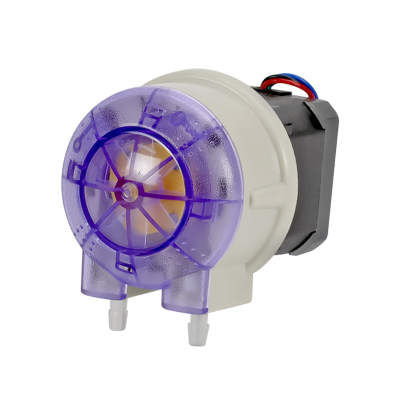Categories
Tags
-
#Peristaltic Pumps
#Micro Peristaltic Pump
#Peristaltic Pump Head
#Straight Tubeline Peristaltic Pumps
#Peristaltic Pump Tube
#Peristaltic Pump
#Cummins Engine
#Silicone Tube for Peristaltic Pump
#Why Multichannel Peristaltic Pumps Are Essential for Laboratory Automation
#Technologies For Jewelry
#Silicone Tubing Peristaltic Pumps
#OEM Peristaltic Pumps
#Silicone Tube for Your Peristaltic Pump
#Handheld Sampling Pump
#The Benefits of Using Peristaltic Pumps in Food and Beverage Applications
#Medical Grade Silicone Tubing
#Large Peristaltic Pumps
#Cummins Engine Cylinder Head
#Industrial Peristaltic Pump
#Low Flow Peristaltic Pumps
#Peristaltic Pump Motor
#Industrial Peristaltic Pumps
#Peristaltic Pumps in Industrial Washing
#3D Printed Peristaltic Pump
#Peristaltic Pump Silicone Tube
#Multichannel Peristaltic Pump
Archives
How to Improve the Efficiency of Peristaltic Pumps?
-
How to Improve the Efficiency of Peristaltic Pumps?
Peristaltic pumps are a new type of industrial pump widely used in pharmaceuticals, food, and chemical industries for conveying sensitive, viscous, highly corrosive, highly abrasive, and high-purity materials. The peristaltic pump tube is the primary working component of the peristaltic pump, and its performance directly affects the accuracy and stability of the pump flow. Many factors affect the life of the peristaltic pump tube, such as the operating speed of the pump head, the material of the tube, and the clearance between the pump head rollers and the arc.
Additionally, the size and uniformity of the tube clearance also affect the life of the peristaltic pump tube. This includes the uniformity of the arc curve, the machining error of the roller and the disc, and the assembly error between the roller and the arc. If the tube clearance is uneven, in order to ensure the airtightness of the pump head, a lower pressure will be taken as the reference, and the position without leakage will be taken as the reference. As a result, other areas will experience overpressure (the gap is smaller than the normal value), thereby reducing the local life of the tube.
With the development of the market, corrosion-resistant peristaltic pumps have gradually been applied to address the special characteristics of media (such as corrosiveness), making up for the shortcomings of traditional peristaltic pumps. Industry experts have pointed out that the conveyance of corrosive media is often accompanied by high temperature, high pressure, or impurities, which affects the service life of the pump; the conveyance of various chemicals and organic solvents is often accompanied by a rise in temperature, and many media may also exhibit high viscosity and high specific gravity due to various process reasons. These phenomena pose a severe challenge to the pump.
-
Gogogo Vpro likes this
